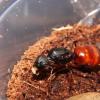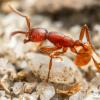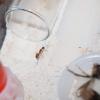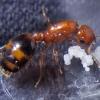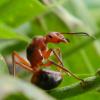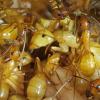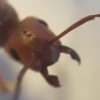A couple of things folks are forgetting here.
1. Just because it appears that the species occurs in more than one state. It is not at all impossible for there to be more than one look alike species involved and considering the level of taxonomic competence of the average ant hobbyist the odds of the mimic species being properly identified is virtually nil.
2. It is entirely possible that the members of a population in one location are hosts to parasites or a pathogen to which they may be resistant but the population in adjoining state are not. Personally I have no problem with the situation as it is, although admittedly some overall clarification would be nice.
Taxonomic issues should be considered, I agree. However they are not as common or widespread as many common US ants are, especially in states that are more well studied. There are certainly more sophisticated ways to deal with them rather than a blanket ban.
I have heard the argument about transmitting parasites, pathogens, or other various diseases, and while this is possibly a valid argument, the current ant laws actually cover this in a completely different way. It's not regulated by an interstate transit ban, but rather the fact that all plant pests, including ants, are illegal to release from captivity, ever. Yes, this is an actual law. I bet most people have never heard of it, because for some reason the antkeeping community only cares about the interstate transit ban and no other parts of the law.
I can't find the section where this is said on hand, but I'm sure I could with some digging and asking around. Even in the exact location where the ant was collected, you are unable to re-release them in the wild for the exact reason of spreading pathogens. With this regulation in place, surely interstate transit should have at least some restrictions lifted, no? Also, if the antkeeping community really cared about this possibility, surely they wouldn't be encouraging people to release colonies that they no longer want, or queens that end up being infertile.
2: Only the transport of ants between state lines is illegal, not actually keeping exotic species. Exotic ants that were imported via another source (I. E. a greenhouse) are legal to be kept by a hobbyist, as the hobbyist did not transport those ants between any state lines.
If someone who had a permit for an exotic species captive bred them and then gave them away to people who didn't have permits, would that be legal? I agree with your points on how the law doesn't make sense, either way you slice it, whether for or against exotics, it definitely needs a rework.
I believe it would be a violation of the permit, as the permits only allow the species to be held at the address listed at the permit and not spread. If the permit holder moves or moves the ants to a new address, the permit needs to be updated. However, the recipient(s) of the exotic species would not be breaking any laws.





